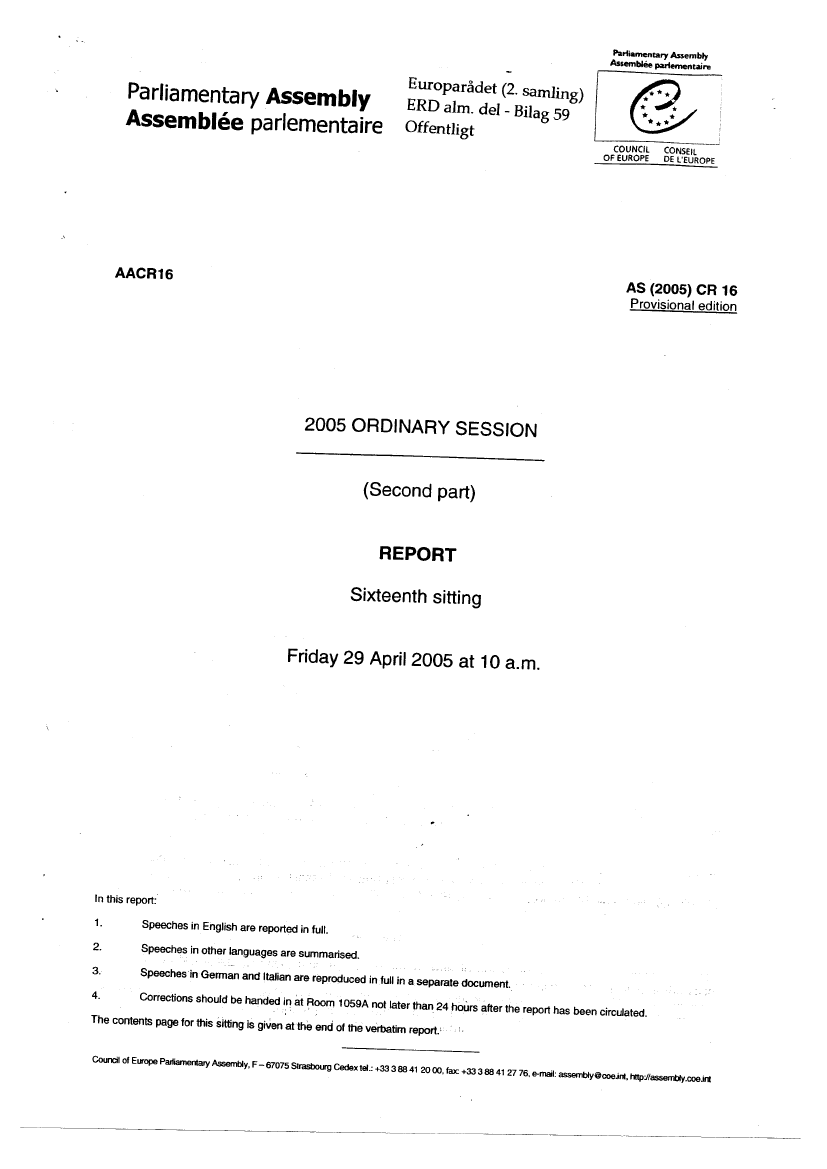
Assemblee parkmentake
Europarådet 2004-05 (2. samling)
ERD Alm.del - Bilag 59
Parliamentary Assembly
Offentligt
Parliamentary Assembly
Assemble parlementaire
Europarådet (2. samlin
g)
ERD alm. del - Bilag
59
Offentligt
***
* *
* * *
COUNCIL
OF EUROPE
CONSEIL
DE L'EUROPE
AACR16
AS (2005) CR 16
Provisional edition
2005 ORDINARY SESSION
(Second part)
REPORT
Sixteenth sitting
Friday 29 April 2005 at 10 a.m.
In this report:
1.
2.
3.
4.
Speeches in English are reported in full.
Speeches in other languages are summar
ised.
Speeches in German and Italian are reprodu
Corrections should be handed in at Roo
ced in full in a separate document.
report has been circulated.
m 1059A not later than 24 hoUrs after the
The contents page for this sitting is give
Council of Europe Parliamentary Assembly,
n at the end of the verbatim report.
F — 67075 Strasbourg Cedex tel.: +33 3 88
41 20 00, fax +33 3 88 41 27 76, e-mail: asse
mbly@coeint, htlp://assembly.coeint